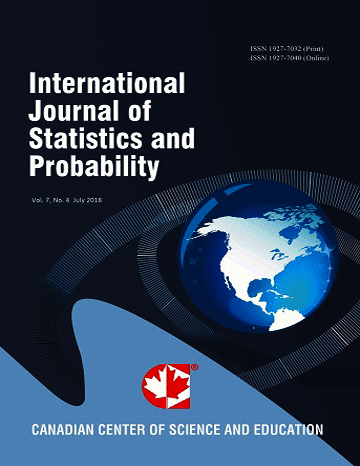Inferring Transcriptional Regulatory Relationships Among Genes in Breast Cancer: An Application of Bayes' Theorem
- Emmanuel Adabor
- George Acquaah-Mensah
- Francis Oduro
Abstract
The introduction of Deoxyribonucleic acid (DNA) microarray technologies provides a means of measuring the expression of thousands of genes simultaneously. It has generally sought to revolutionalize biological research by significantly elucidating biological processes. Gene networks may be inferred from such microarray data. Bayes' theorem, in this work is applied to the problem of inferring new transcriptional regulatory relationships among gene products in Breast Cancer. A compendium of human breast epithelial cell probe level microarray data from the Gene Expression Omnibus (GEO) repository was subjected to the Robust Multiarray Average (RMA) procedure for normalization and background correction. A subset of the resulting expression matrix consisting of the expression values of only relevant probe-set identifiers (IDs) representing the genes of interest in the data were extracted with a LISP code. This subset was supplied to a Bayesian Network inference learning algorithm to unearth new regulatory relationships from the data. Variations in parameters of the learning algorithms resulted in the prediction of at least 10 new relationships among genes in breast cancer. Among these were the direct regulatory signaling relationship between S-phase kinase associated protein 2 (SKP2) and the Cell division cycle 25A (CDC25A) and that between the cyclin-dependent kinases regulatory subunit 1 (CKS1B / CDC28) and E2F transcription factor 3 (E2F3). The identified causal networks are potentially useful for understanding complex drug actions and dysfunctional signaling in breast cancer.
 PDF
PDF
